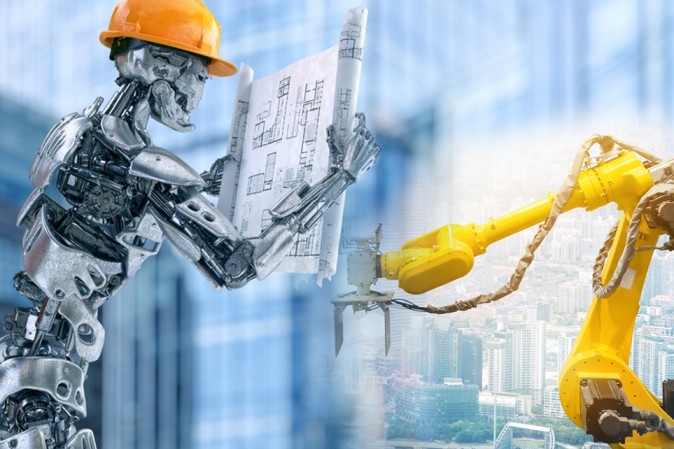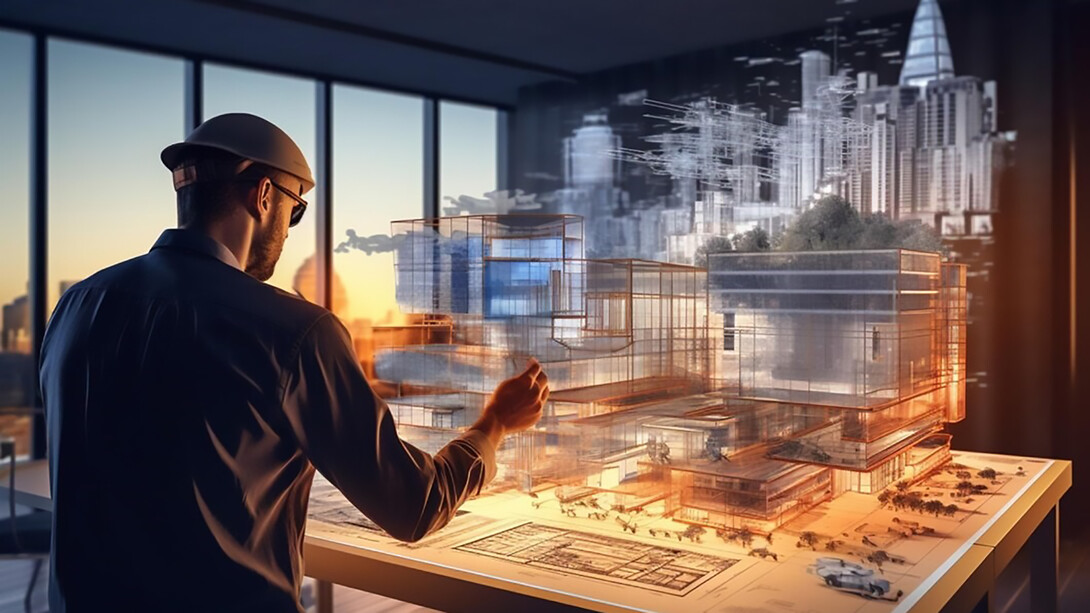Key AI Technologies in the Construction Industry
Machine Learning (ML)
Machine learning is a subset of artificial intelligence focused on developing systems that can learn and adapt based on data. It relies on models like artificial neural networks (ANNs) and simulated neural networks (SNNs), which are designed to mimic the human brain’s learning process.
Rather than following fixed instructions, ML algorithms identify patterns in large and often unstructured datasets. They then use these patterns to make predictions or decisions in real time, dramatically improving the speed and efficiency of data-driven processes.

One key advantage of machine learning is its flexibility. Unlike traditional software that delivers only pre-programmed outputs, ML systems can dynamically generate a wide range of results based on new inputs.
Generative AI
Generative AI is an emerging field within AI that focuses on creating new content—whether that’s text, images, audio, or designs—based on provided input or existing data. It builds on deep learning, a sophisticated type of machine learning capable of understanding and synthesizing visual and auditory information.
By learning from massive datasets, generative AI can produce original results that reflect the style or structure of the input it has studied. For example, in construction, this might involve generating innovative architectural models inspired by existing blueprints and design standards.

Internet of Things (IoT)
The Internet of Things refers to physical devices embedded with sensors, software, and connectivity tools that allow them to collect and exchange data with other devices and systems through networks, including the internet.
While IoT is most commonly associated with smart home applications—like voice-controlled lights or thermostats—it plays a growing role in construction. AI-enhanced IoT devices can automatically monitor and respond to environmental changes, helping optimize building performance and safety without constant human oversight.
AI Robotics
AI robotics combines artificial intelligence with robotics to create machines that can perceive their surroundings, make decisions, and learn from experience.
These intelligent robots are equipped with sensors and powered by machine learning algorithms. They interpret real-time data from their environment, recognize patterns, and adapt their actions accordingly. This allows them to perform complex tasks—like navigating uneven terrain or handling materials—while responding dynamically to changes on a construction site.
- Phương pháp điều hành kinh doanh trên toàn cầu của IKEA và vai trò của văn hóa tổ chức
- So sánh hệ thống tài khoản kế toán trong Thông tư 99/2025/TT-BTC và Thông tư 200/2014/TT-BTC
- Common Pitfalls in TOEIC Preparation and How Strategic Learning Improves Test Performance
- Singapore’s First Multi-Storey 3D-Printed House
- 3D Concrete printing Technology



